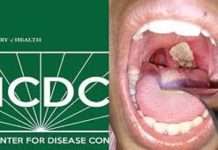– As UNILAG Faculty of Pharmacy holds maiden scientific conference
Seasoned professionals in the pharmaceutical and life sciences have saddled pharmacists in the academia with the obligation of strengthening national health systems, as well as charting a new course for pharmaceutical sciences in the country.
According to them, these can be achieved through the creation of R&D faculty plans and tailoring of teaching and training towards drug development.
The experts, who included Vice-Chancellor, University of Lagos (UNILAG), Prof. Oluwatoyin Ogundipe; Deputy Vice-Chancellor, Academics and Research, Prof. Wole Familoni; Dean, Faculty of Pharmacy, Prof. Glory Ajayi; University Liberian, Dr Yemi Zaid; and Secretary-General, West African Postgraduate College of Pharmacists (WAPCP) Prof. Noel Wannang, harped on the need to leverage technology to improve service delivery and collaboration between academia and pharmaceutical companies.

The specialists, who also included Prof. Adeboye Adejare, University of the Sciences, Philadelphia, USA; Prof. Olobayo Kunle, former acting DG, NIPRD; Deputy Provost, College of Medicine, University of Lagos, Prof. Osaretin Albert Ebuehi; Chief Operating Officer, Alpha Pharmacy and Chairman, Association of Industrial Pharmacists of Nigeria (NAIP), Pharm. Ignatius Anukwu, noted the negative impacts of the COVID-19 pandemic on national healthcare delivery systems and emphasising that urgent improvement is particularly imperative in the nation’s healthcare sector.
They further stressed that academic pharmacists, being key stakeholders, must rise to the challenge by engaging in politically-inclined research for advocacy, establishing cross specialities, cross-institutional/ cross-generational teams, and developing local models for herbal medicines research.
The erudite scholars converged at the recent UNILAG pharmacy faculty’s First Annual Scientific Conference held virtually, with the theme: “Post-COVID-19: Charting a course for the pharmaceutical sciences and health systems strengthening”.
In a communiqué announcing the resolutions of the two-day conference, the faculty highlighted key issues to be brought to the front burner for healthcare systems development to be a reality.
The conference acknowledged the important roles of pharmacists, especially those in the academia, urging them to face the challenges squarely by evolving practices and policies that will provide solutions.
According to the communique: “Apart from addressing the impacts of COVID-19 during this conference, hosting an annual scientific conference by the faculty will provide a forum for sharing research findings by faculty members with other scientists and pharmacist, as this will encourage collaborations.
“Conference also agreed that health systems are dependent on a sound pharmaceutical sector and the pharmaceutical industry is completely dependent on a vibrant pharmaceutical sciences subsector as typified in the public academic institutions and the research institutes.
“Conference observed that the pandemic brought some much-needed attention to the research landscape with state governments, TETFUND, CBN and multinational companies setting up committees and investing in research to look inwards to find practical solutions to the pandemic;
“Conference agreed that our mind-set must change from the silos mentality to collaborative research within the academia and the research institutes with effective collaboration with the pharmaceutical industry. Currently, there is a vast disconnect between the industry and academia.”
The document also stated that government’s involvement cannot be overemphasised in actualising the expected changes and improvements.
“While conference recognises that there are aspects of charting the course for the pharmaceutical sciences in the hands of the faculties and the local research community, government input is essential. Government input in terms of effective policies, appropriate funding, enhancing the research environment, uptake and utilisation of research outcomes is required to ensure a complete overhaul of the processes for the future”, the document stated.
The researchers were also reminded on the need to leverage technology as an enabler, and not an end in itself.
“Technology should be seen as a catalyst; so if the system is not sound, technology will make it much worse. Technology will help add value to a system that is good but will not make a bad system better,” they noted.
The conference also called for continuous advocacy with the government at all levels in promoting and achieving public health services by pharmacists.
“A concise policy or regulation on vaccination that includes pharmacists is long overdue, and conference calls on










